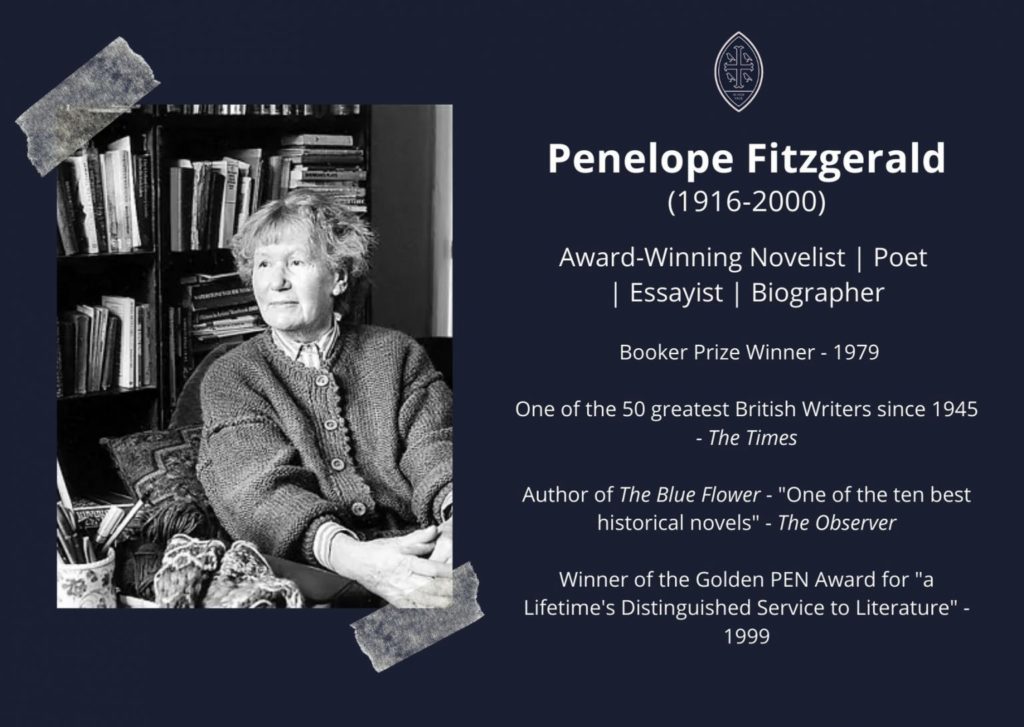#WycombeWomen: Penelope Fitzgerald
6 July 2021 - All

Booker Prize-winning novelist, poet, essayist and biographer, Penelope Fitzgerald (1916-2000), was listed in 2008 by The Times as one of the “50 greatest British writers since 1945”. The English novelist was noted for her economical, witty and intricate works, and despite only beginning to write in her late 50s, published nine novels and three biographies, having been honoured with some of literatures top awards.
Known as “the quiet genius of late 20th century English Fiction”, Penelope was born during the Great War at the end of 1916. Penelope was born into an impressive family, with her Father the editor of Punch, and her Mother one of the first female students to attend Oxford University.
Penelope began her education at Wycombe Abbey School, receiving a scholarship for her talents, and going on to study A-levels in English, French and History. During her time at Wycombe, she contributed to the school magazine, the Gazette, on a number of occasions. Penelope graduated from Somerville College, Oxford University, where she received a congratulatory First, being named “Woman of the Year” in the student newspaper.
During the Second World War, Penelope worked for the BBC and in the early 1950s co-edited The World Review magazine with her husband, in which J.D. Salinger’s “For Esmé with Love and Squalor” was first published in the UK. Penelope also contributed her own writing to the magazine, on topics such as literature, music and sculpture. She was a teacher for 26 years, including at the Italia Conti Academy and Queen’s Gate School, where her pupils included Camilla Shand (later Camilla, Duchess of Cornwall).
Penelope’s literary career began in 1975 at the age of 58, beginning with “scholarly, accessible biographies”. She published her first novel in 1977, The Golden Child.
Penelope’s early fiction drew on her own life and experiences. Offshore was a novel set among residents of houseboats in Battersea, where in 1961 Penelope once lived herself. The novel won her the 1979 Booker Prize. Offshore is the shortest novel to have ever won the Booker Prize at only 132 pages; a fact often cited when the question of ‘how to define a novel’ arises.
In 1999, she was awarded the Golden PEN Award from English PEN for a “Lifetime’s Distinguished Service to Literature”.
Her final novel, The Blue Flower, published in 1995, centres on the 18th-century German poet and philosopher, Novalis. It also features other historical figures such as Goethe and the philosopher Karl Wilhelm Friedrich von Schlegel.
The book won the National Book Critics Circle Award 1997 and was adapted and dramatized for BBC Radio in 1999. In 2012 The Observer placed The Blue Flower among “the ten best historical novels”.